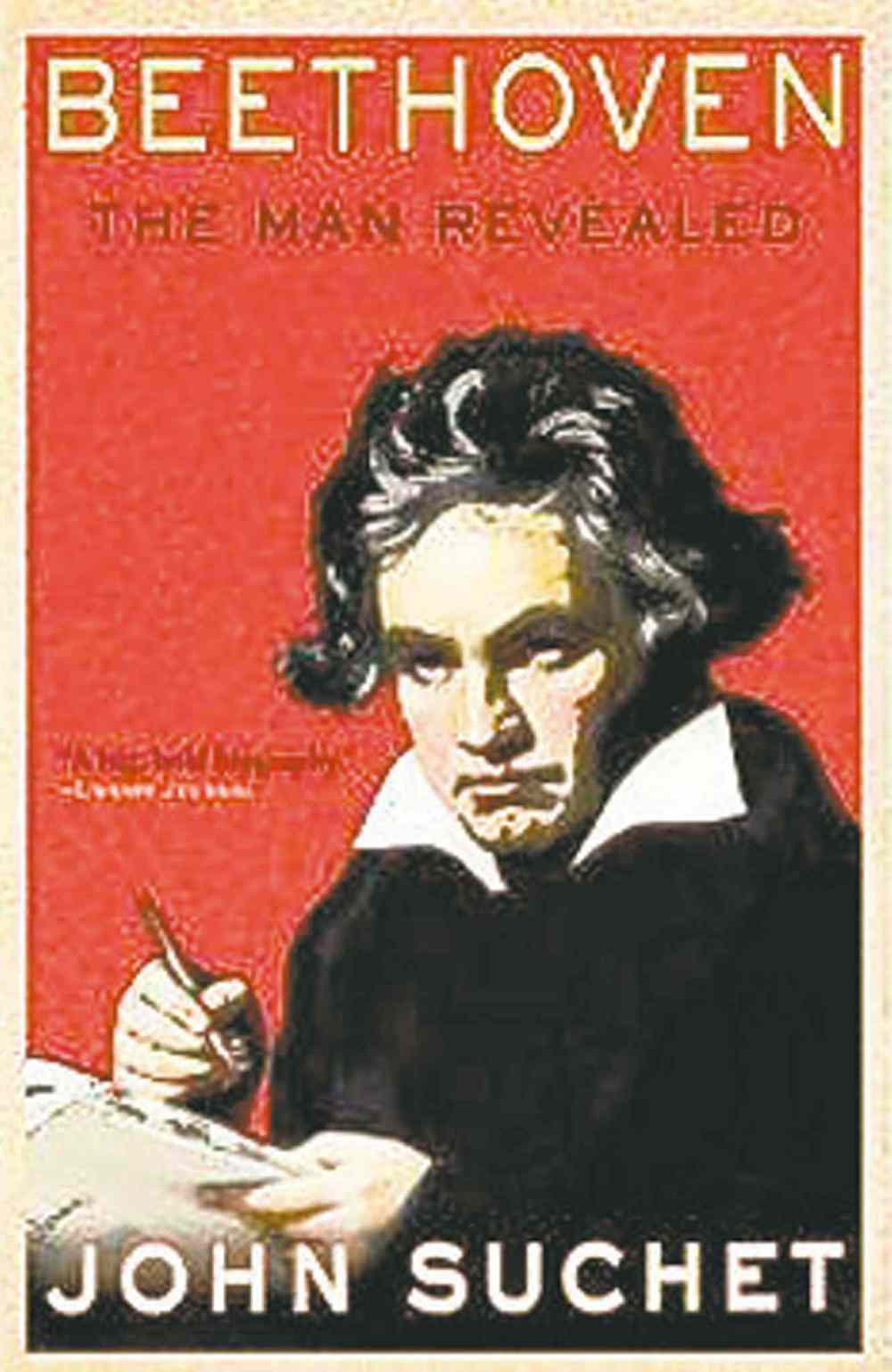Beethoven bio revisits a musical genius
Advertisement
Read this article for free:
or
Already have an account? Log in here »
To continue reading, please subscribe:
Monthly Digital Subscription
$0 for the first 4 weeks*
- Enjoy unlimited reading on winnipegfreepress.com
- Read the E-Edition, our digital replica newspaper
- Access News Break, our award-winning app
- Play interactive puzzles
*No charge for 4 weeks then price increases to the regular rate of $19.00 plus GST every four weeks. Offer available to new and qualified returning subscribers only. Cancel any time.
Monthly Digital Subscription
$4.75/week*
- Enjoy unlimited reading on winnipegfreepress.com
- Read the E-Edition, our digital replica newspaper
- Access News Break, our award-winning app
- Play interactive puzzles
*Billed as $19 plus GST every four weeks. Cancel any time.
To continue reading, please subscribe:
Add Free Press access to your Brandon Sun subscription for only an additional
$1 for the first 4 weeks*
*Your next subscription payment will increase by $1.00 and you will be charged $16.99 plus GST for four weeks. After four weeks, your payment will increase to $23.99 plus GST every four weeks.
Read unlimited articles for free today:
or
Already have an account? Log in here »
Hey there, time traveller!
This article was published 11/01/2014 (4352 days ago), so information in it may no longer be current.
Countless biographies of one of the world’s most recognized classical music composers, Ludwig van Beethoven, already exist. Why British journalist, radio host and admitted Beethoven obsessive John Suchet felt the need to add one more is not entirely clear, especially since this is his sixth biographical volume about the legendary German composer.
Suchet’s previous books on his obsession include an epic trilogy, The Last Master (a detailed biography), The Classic FM Friendly Guide to Beethoven (lighter reading for listeners) and The Treasures of Beethoven (an introduction Beethoven’s life and works). Suchet wrote this one, he insists, because there is currently no biography for non-academics and non-scholars of music who simply love Beethoven’s music.
Not a note or bar staff appear in the text, which is unlike most comprehensive works written to date on the prolific deaf composer of 138 works published during his life, plus hundreds more unpublished.

Suchet recommends for further reading The Beethoven Compendium: A Guide to Beethoven’s Life and Music (1991) and Beethoven (2000) by music professor Barry Cooper.
What is new here, according to Suchet, who writes enthusiastically in first person like a radio host talking to listeners, are some source documents translated into English for the first time, and extra focus on events in Beethoven’s life (1770-1827) that were given little or no attention in other biographies.
For example, hardly any biographies delve sufficiently (for Suchet’s liking) into the details of how 16-year-old Beethoven met the legendary Wolfgang Amadeus Mozart in 1787 in Vienna.
That they met is a fact, but what transpired between them is missing. Lacking facts, Suchet puts together what might reasonably have transpired given the circumstances of their lives and what is known of their personalities.
Mozart, 31, was ill at that time, with four years left to live. His finances were bad and his family life was in turmoil.
Suchet speculates that the elegant Austrian would have been less than impressed with the messy-haired teenager who supposedly played the piano.
Suchet wants to know: did Mozart give Beethoven lessons? Why did neither of them write a word about the meeting? The only notes in Beethoven’s papers that mention Mozart are questions from his nephew Karl in a conversation book that Beethoven used after going deaf. “You knew Mozart, where did you see him?” and “Was Mozart a good pianoforte player?”
Suchet laments the fact that Beethoven would have spoken his answers out loud, leaving nothing for posterity.
Such speculation is fascinating but nonetheless fictionalized — the truth of what was said will always be a mystery.
One nuisance in the book is the completely unnecessary set of footnotes at the back which mostly serve to disrupt the otherwise engrossing narrative, adding little useful information. Most if not all could have easily been placed at the bottom of the page or worked into the body.
Suchet’s Beethoven is more like the man revisited than the man revealed. He is not so different from the passionate, wild genius we already know about from popular culture representations like the Bernard Rose film Immortal Beloved (1994) starring Gary Oldman, or the children’s film Beethoven Lives Upstairs (1992).
Winnipeg writer Christine Mazur has played the violin since she was three.
History
Updated on Saturday, January 11, 2014 8:39 AM CST: Tweaks formatting.


